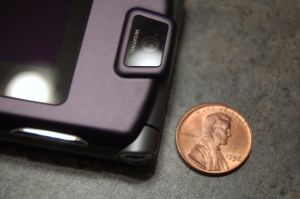iQueue
by Ryan Knapp The Apple iPhone is this summer's must-have gadget, and lines began forming across the country four days early for the chance to grab one of the first available. iPhones sell for about $500, and if you hope to get one early, you may have to queue up for days just for the privilege.
The Apple iPhone is this summer's must-have gadget, and lines began forming across the country four days early for the chance to grab one of the first available. iPhones sell for about $500, and if you hope to get one early, you may have to queue up for days just for the privilege.Paradoxically, the type of people who are willing and able to spend $500 on the iPhone are also likely to have high-paying jobs that make it difficult to take an entire week off to wait in line. Fortunately for gainfully employed iPhone seekers, summer has brought with it a surplus of young people looking to earn a bit of extra money.
Ads are popping up all over Craigslist for so-called "professional waiters" who, for a fee, will line up to buy you an iPhone. The going wait rate is currently around $250 in New York and $200 in San Francisco. Lines are now full of people donning "iWait" shirts to show off their newfound occupation.
While the iPhone scene is replete with interesting economics, perhaps the most interesting phenomenon is the group of people who choose to bear the cold nights themselves rather than pay an iWaiter. With an ample supply of "low-skilled" workers fit for the job, many still choose to do the waiting themselves. Why would someone prefer to spend his or her own valuable time waiting in line when they could pay someone else who, by virtue of their offer, almost certainly has a lower opportunity cost?
Discussion Questions
1. What factors determine a person’s opportunity cost of waiting in line to buy an iPhone?
2. What benefits might people reap from waiting in line? (Maybe they enjoy the camaraderie? Perhaps they are "purchasing" a good story to tell at parties?)
3. All transactions involve an element of risk. Contracts, social norms, property rights, insurance, and consumer protection laws can help to mitigate transaction risks and facilitate trade, but waiting in line to buy an iPhone is a fairly informal transaction. What risks do line waiters assume? What risks do the people paying line waiters assume? Search for some iPhone line waiting listings on the Craigslist site for the San Francisco area. In what ways do iWaiters attempt to mitigate transactions risks?
4. If people are willing to pay upwards of $700 ($500 cash, $200 for a waiter) for an iPhone, why doesn't Apple raise the price?
Financial Times economics reporter Tim Harford addressed a similar question about the Xbox 360 shortage of 2005 here and here.
Labels: Opportunity Cost




